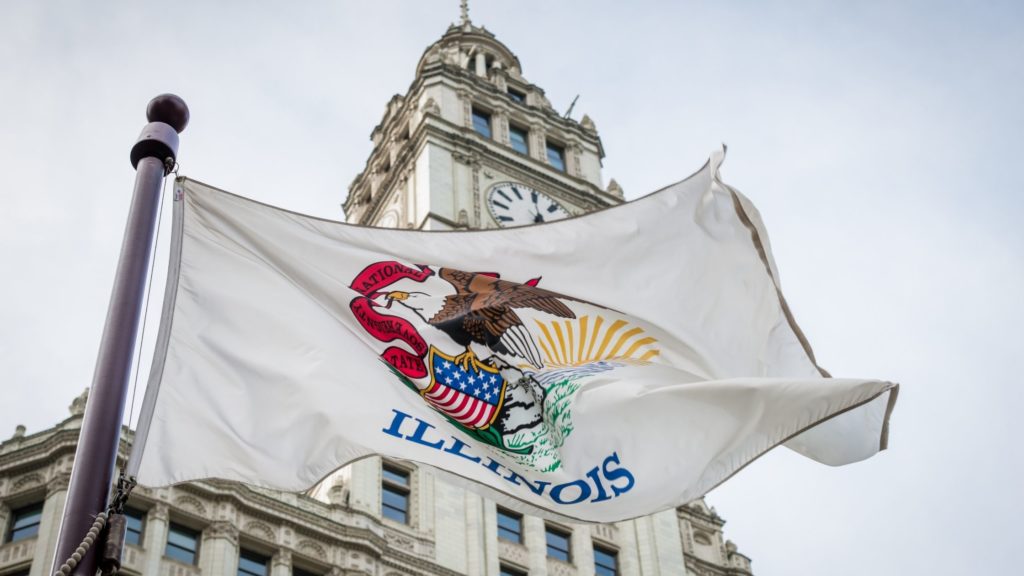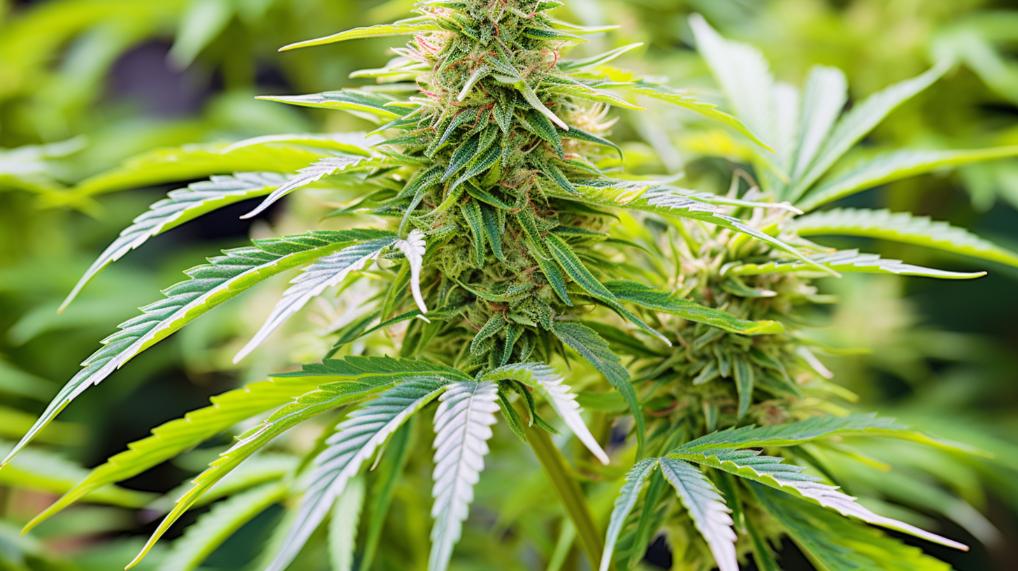Illinois sets the record straight on pot

Illinois becoming the 11th state in the Union to legalize recreational marijuana is exciting in and of itself in recent cannabis news. But perhaps even more worthy of being mentioned is the fact that those harmed by the war on drugs in Illinois will see a reprieve.
Under the Prairie State’s newly signed law, the records of nearly 800,000 people with marijuana-related criminal records will be eligible to be expunged.
Setting the captives free
The Marijuana Policy Project said the new law – called the Cannabis Regulation and Tax Act – “will usher in one of the most sweeping criminal justice reforms so far in the cannabis movement.”
For convictions of illegally possessing up to 30 grams of marijuana, the Illinois governor’s clemency process will be used to automatically expunge individuals’ records.
If an individual was convicted for illegally possessing amounts between 30 and 500 grams, they will have to petition the court in order to vacate their conviction.
“In all, around 770,000 cannabis-related records will be eligible for expungement.”
These individuals will also be eligible under the law’s “social equity program” to receive help to obtain business licenses.
“In the past 50 years, the war on cannabis has destroyed families, filled prisons with nonviolent offenders and disproportionately disrupted black and brown communities,” said Governor JB Pritzker at the law’s signing.
Acknowledging that the law will not undo past injustices or “turn the clock back,” Pritzker said it would allow the state to “turn the page.”
If Illinois residents are caught possessing even small amounts of marijuana before the new law takes effect, they shouldn’t assume that they’ll be let off easy, though. Illinois’ law enforcement is reportedly expected to continue to enforce the current legal regime until the new law goes into effect on January 1, 2020.
Bars, restaurants, and deliveries
Marijuana will be legally sold in the state beginning January 2020; statewide sales are estimated to reach $1.14 billion within the following four years.
Smoking marijuana will be exempted from the statewide indoor smoking ban under the new law, putting the decision in cities’ hands. Public health advocates were not pleased with this development; some even reportedly calling it ” a step backwards.”
A poll by Global Strategy Group found than 60 percent of Illinois residents supported “legalizing recreational marijuana, taxing it, and regulating it just like alcohol.”
The Chicago Sun-Times reported that – in addition to the regular assortment of edibles, vapes, tinctures, and topicals – Illinois residents will soon be able to purchase products such as cannabis-infused Ramen noodles, honey, and coffee pods.
Hollywood actor and Illinois native Jim Belushi is reportedly looking at expanding his Oregon marijuana business to Illinois, California, and Nevada under the Blues Brothers band brand. Belushi, whose late brother John was a founding member of the band with fellow actor Dan Akroyd, performs as band member Zee Blues. Belushi is one of several celebrities putting their name behind the burgeoning industry in the hopes of bringing it into the mainstream retail market. John Belushi died in 1982 from a drug overdose; he was killed from the combined combination of cocaine and heroine, known as a speedball. Belushi believes his brother would be alive today if he had turned to cannabis instead of opiates.
Colorado lawmakers recently approved marijuana home deliveries. The law, which takes effect in January 2020, would first allow for home delivery to medical marijuana patients. Tasting rooms will be able to get licensed in January as well. Dispensaries and delivery services will be able to start offering home delivery the following year.
Westword, however, reports that not all parts of the local cannabis industry were on board with the development, fearing “tech-savvy companies and an Amazon-like takeover.”
Delivery services, according to dispensary chain Bgood’s community relations manager, Tim Morgen, turn brick-and-mortar retailers into “fulfillment centers.”
“If you’re taking orders through them, then they’re the store,” Morgen told Westword. “They have all the information about you, and they have a relationship with you.”
New York decriminalizes pot
New York lawmakers recently failed to pass legislation to legalize the recreational cannabis industry, instead opting to decriminalize marijuana possession.
The bill, while applauded as a step in the right direction, is hardly a new venture for New York. It instead amends a 1977 state decriminalization law, which had decriminalized possession of up to 25 grams, less than an ounce.
“The purpose of this bill is to make New York penal law fairer and more equitable in the administration of marihuana enforcement, and avoid the disparate racial and ethnic impact seen in current marihuana enforcement,” states the bill’s text.
Public and private possession of fewer than two ounces of marijuana is a violation subject to a ticket and a $100 fine; less than one ounce is a violation subject to a ticket and a $50 fine. Marijuana is now included under the definition of “smoking” under the state health laws, subjecting the state’s indoor public smoking ban.
Filmmaker Jane Wells, writing for Crain’s New York Business, applauded the result, stating that legalizing recreational marijuana “would have allowed the unregulated pursuit of profit to create a new cadre of victims” in the War on Drugs.
A John Jay College study published in February found that Blacks and Hispanics were arrested at higher rates for marijuana possession than Whites.
Medical marijuana was legalized in New York in 2014. Patients are required to reside within the state and register with the state’s Department of Health. Medical marijuana must be in “non-smokable” form. Qualified patients may possess a 30-day supply of edibles and topicals. Qualifying conditions range from “Acute pain management” to Post-Traumatic Stress Disorder and spinal cord damage.
The New York State Department of Health announced regulations in 2017 expanding the variety of topicals and edibles registered organizations were allowed to manufacture and distribute various topicals and edibles.
“All products will be subject to rigorous testing and the Department will reserve the right to exclude inappropriate products or those which pose a threat to the public,” said the agency.
According to WRVO, Colorado saw a “significant jump” in marijuana-related emergency room visits following legalization.
Federal lawmakers seek to streamline medical research
A bipartisan coalition of U.S. senators introduced legislation to support marijuana and CBD research.
The bill – the Cannabidiol and Marijuana Research Expansion Act – was introduced by Senators Dianne Feinstein (D-Calif.), Chuck Grassley (R-Iowa) and Brian Schatz (D-Hawaii).
The senators, in a press statement on Feinstein’s website, echoed longstanding criticism of the War on Drugs. They said strict federal regulations on marijuana and CBD “pose an obstacle to medical research.”
CBD is the non-psychoactive chemical in the cannabis plant favored for its medicinal properties.
A key piece of the proposed law, backed by the American Medical Association (AMA), would amend the federal definition of marijuana “to exclude the synthetic equivalent of hemp-derived CBD that contains less than 0.3% THC.”
It also “streamlines the development of FDA-approved drugs using CBD” and marijuana.
The bill is currently cosponsored by Senators Dick Durbin (D-Ill.), Amy Klobuchar (D-Minn.), Thom Tillis (R-N.C.), Tim Kaine (D-Va.), Joni Ernst (R-Iowa) and Kevin Cramer (R-N.D.).
33 medical and public health organizations endorsed the bill at time of its introduction.







Responses